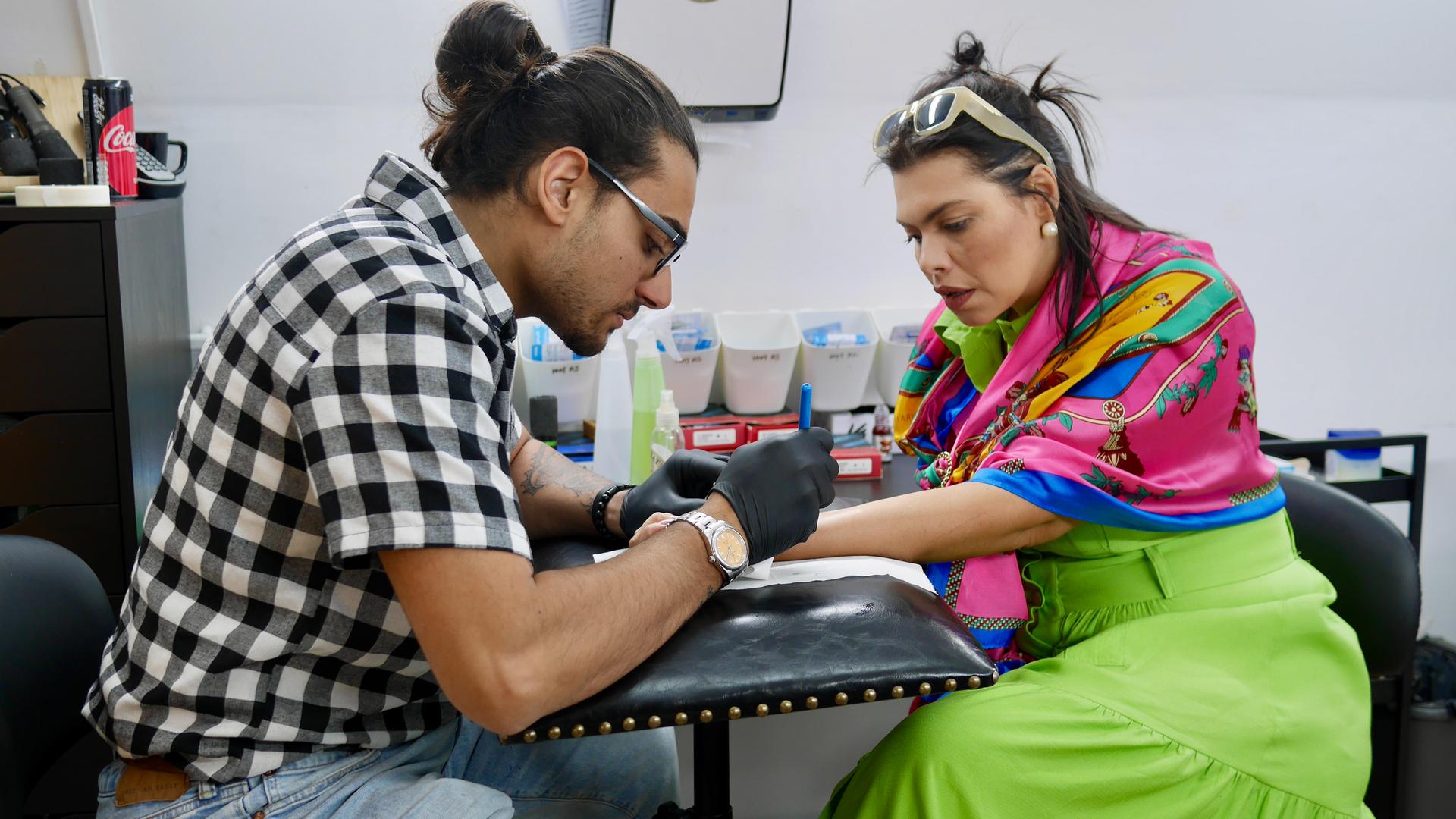This Jerusalem tattoo studio is part of a centuries-old Christian tradition
Debora Magina is taking part in a religious ritual that goes back to the Middle Ages.
“I’m here in the oldest tattoo studio in the world,” said the native of São Paulo, Brazil, who is Catholic and on a pilgrimage in Jerusalem.
“This trip has lifted my faith, so I’m marking this moment with a tattoo and that’s really important for me.”
Magina’s new tattoo is simply the word, gratidão (“gratitude” in English), written in a delicate script across the inside of her wrist. It’s the sort of religious-themed body art that the proprietors at Razzouk Tattoo have been doing for generations.
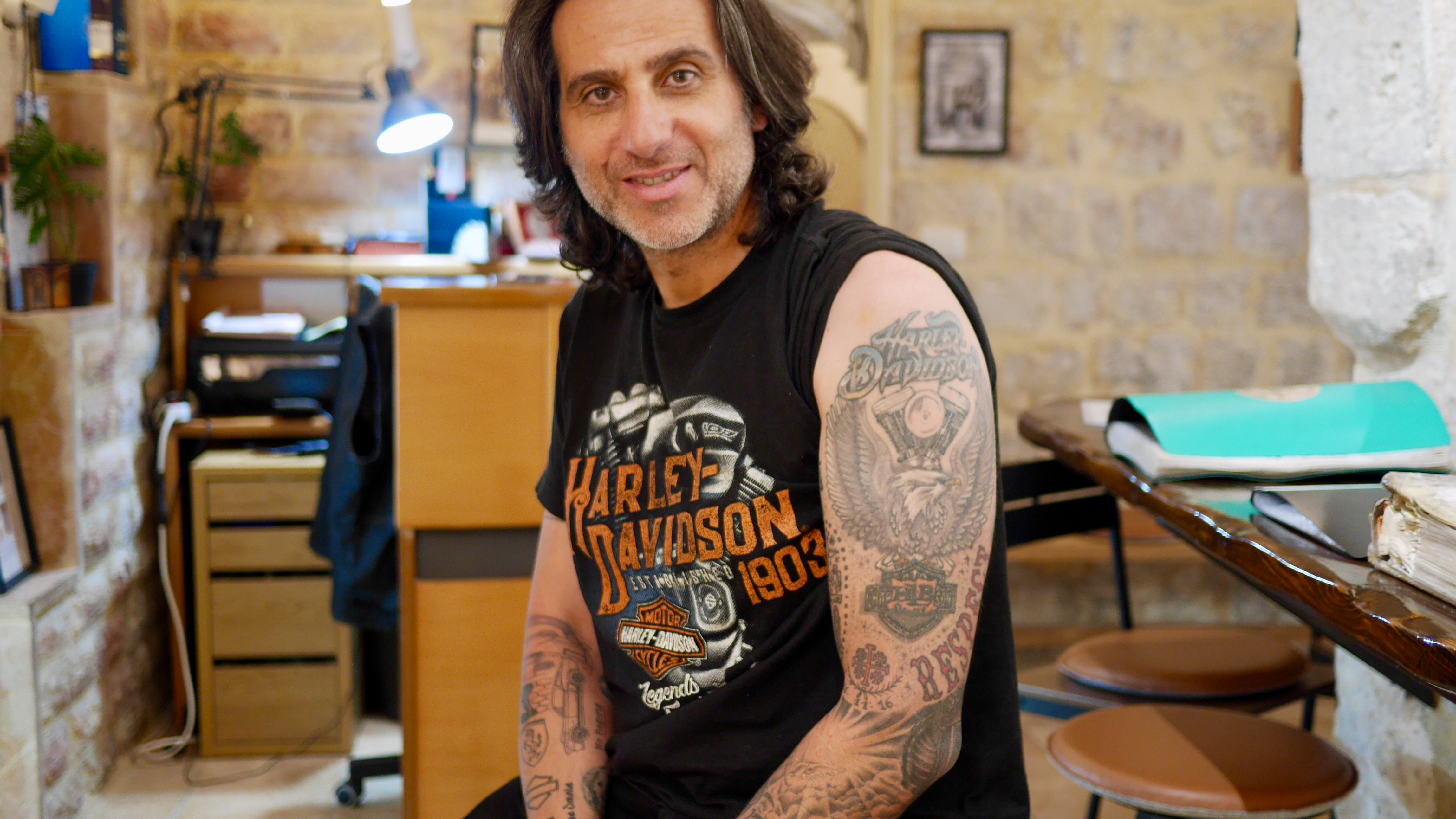
“We are a family that continues the tradition of tattooing pilgrims in the Holy Land,” Wassim Razzouk said. “I am the 27th generation, and my two sons are continuing this beautiful tradition.”
The Razzouks are Coptic Christians, originally from Egypt, who’ve been doing religious tattoos since the 14th century. They relocated to Jerusalem around 500 years ago, and the family has been tattooing Christian pilgrims in the Holy Land ever since.
Razzouk grew up in the Old City of Jerusalem.
“I watched my father do tattoos, my aunt do tattoos,” he said. “I can’t remember my grandfather because he died when I was 3 years old.”
Today, the family tattoo business is located in a quiet alleyway of the Old City, not far from the Church of the Holy Sepulchre, one of the holiest sites on Earth for Christians.
In Israel and the Palestinian Territories, Christians make up less than 2% of the overall population. But Christians make up more than half of the tourists who visit the Holy Land every year. Most of the people who come to Razzouk’s studio looking for a new tattoo are Christian pilgrims from abroad.
“I would easily say 90% of the people who come here get tattoos as pilgrimage tattoos,” Razzouk said.
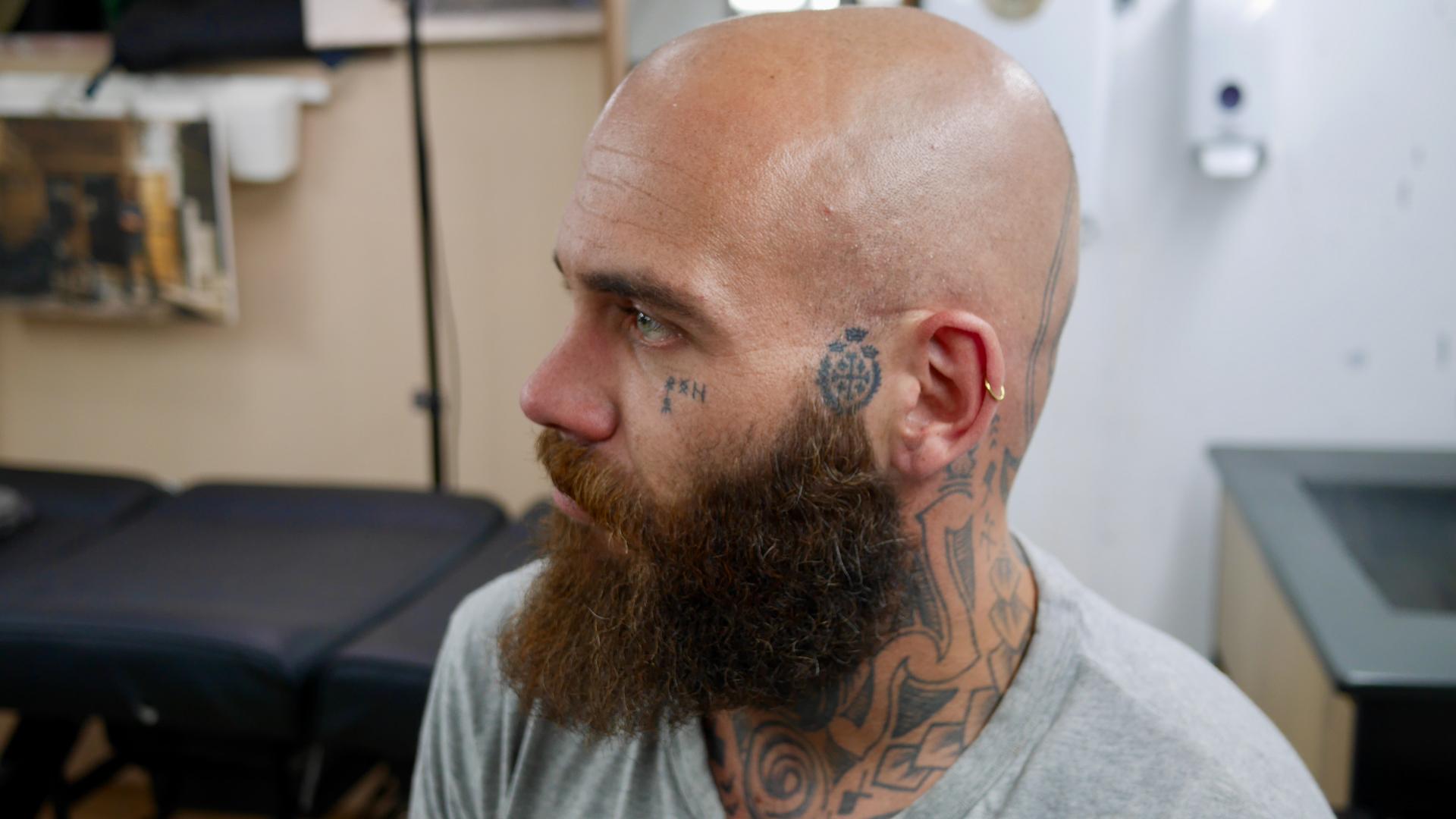
In ancient times, Razzouk said that pilgrims wanted to go back home from the Holy Land with a tattoo showing that they’d successfully made the perilous journey there. It was also a status thing, he said. Nowadays, people like the idea of carrying on the tradition.
“They want to feel that they have become different now after they have become pilgrims, that they have renewed their faith, that they have walked the steps of Jesus, that they have lived the Bible that they have read on paper.”
Razzouk said he’s done tattoos for people in their 70s, 80s and 90s who never had any interest in tattoos before going there on pilgrimage. A lot of his customers are Westerners. But he also does tattoos for Christians who live in the region.
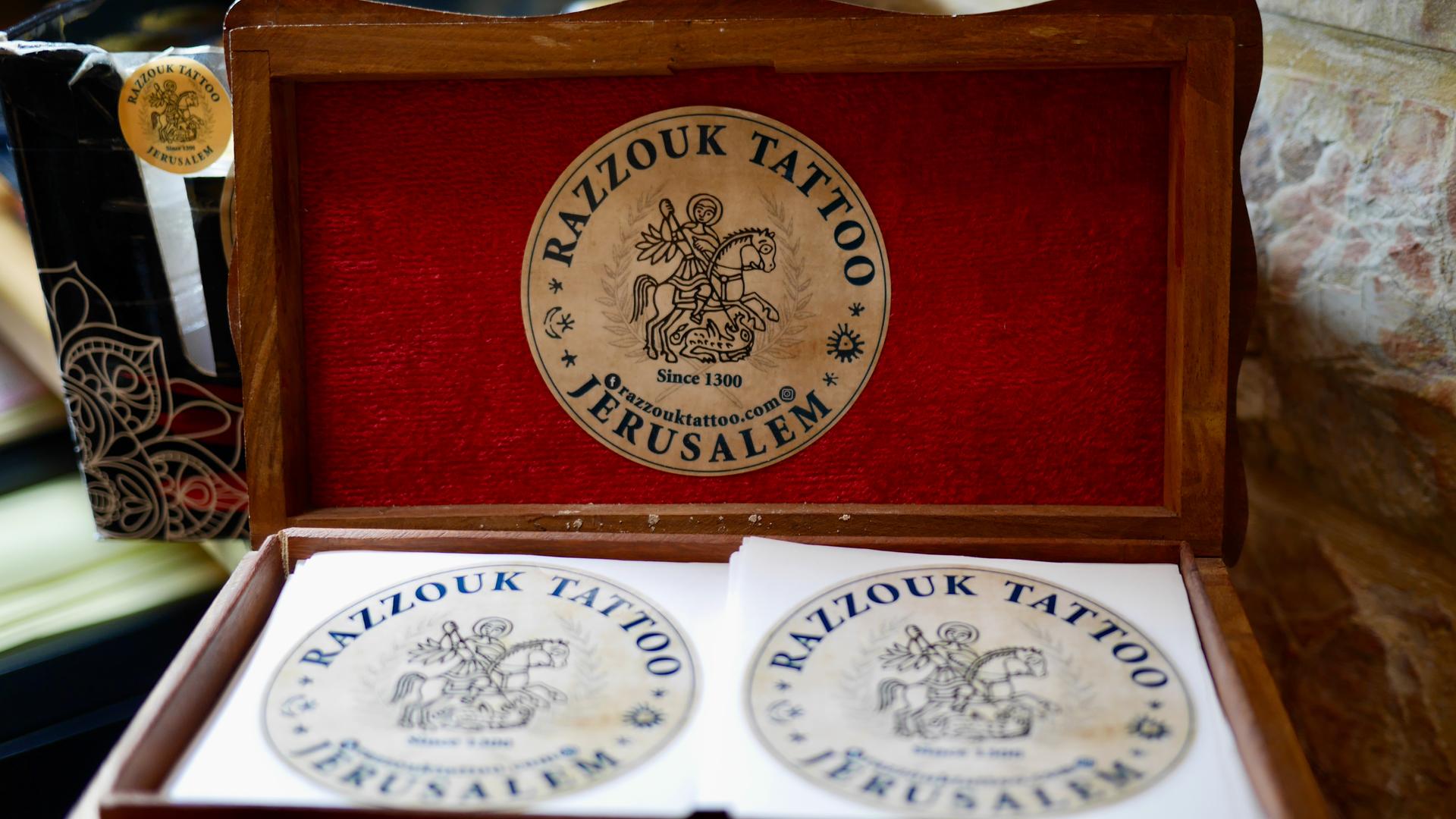
“We are the minority here, in Israel and in the Holy Land. Because we are the minority, they think we are weak,” Razzouk said.
“It’s not easy. It’s very difficult to be a Christian in the Holy Land. It’s very difficult to be a Christian in the Middle East among people who sometimes never even heard about Christianity. And sometimes, they know that you are a Christian and that is a reason to hate you even more, and not only to persecute you, but also to attack you.”
And for that reason, he said that some people get religious tattoos on parts of their bodies that their clothes will cover.
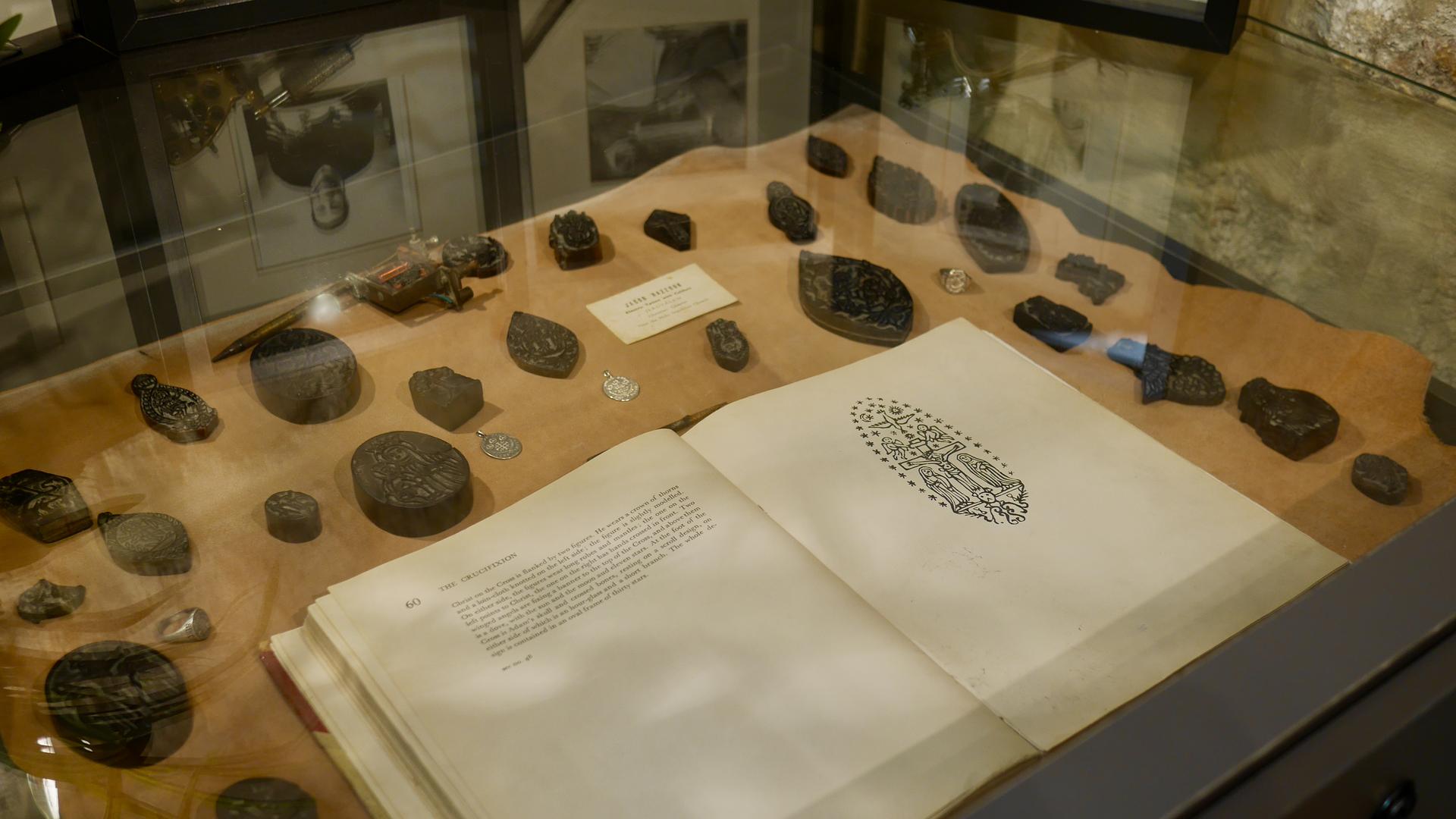
Still, some Christians from the region, Razzouk said, choose to get something like a cross on their lower wrist, to identify their faith, whatever the risk.
Some of the most popular tattoo designs in the studio go way back in history. There’s the image of St. George slaying a dragon, and the Jerusalem cross — that’s a plain, Greek cross surrounded by four smaller ones.
Razzouk has a Jerusalem cross in red on his left arm, next to another much larger tattoo.
“This is one of my Harley tattoos with the eagle and the engine of the Harley. It’s the heart of the Harley Davidson. I love Harleys. I love bikes. It’s part of my life.”
Razzouk said he managed to do a pilgrimage of his own a few years ago, traveling to the Black Hills of South Dakota for the annual motorcycle rally at Sturgis. He said that he didn’t end up getting a tattoo on that trip, but that he did bring home more than one T-shirt.
